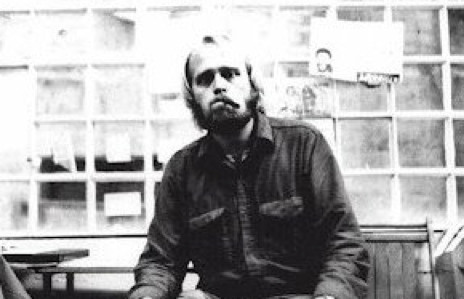The Williams who torques sentences

The William Carlos Williams that motivated a young Robert Creeley was The Wedge of 1944. For Ron Silliman and — he suspects — others among those who "became known as Language Poet[s]" — the key Williams was to be found in Spring & All (1923). They found it in the 1970 Frontier Press edition.
Silliman believes that one of the important distinctions between the Language Poets and earlier avant-garde generations was their "different reading" of Williams — their Spring & All-centered reading of him.
As Ron prepared to participate in a 1999 symposium I hosted at the Writers House on contemporary poetry, I asked him about his WCW, and this is how he responded:
[S]omething Robert Creeley said at his reading in Camden recently [November 1999] made me conscious once again of how radically different the different generations will read certain poets. For Creeley, the important Williams was his 1944 book, The Wedge, and what mattered to Creeley was seeing how much the work was driven by (his word) "anger."
Now Williams had a huge impact on me — it was discovering The Desert Music when I was 16 that made me realize that poetry was the form/genre/tradition that would allow me to do what I wanted to as a writer. But it was Spring & All that would be for me (and I suspect for many others of "my" generation) become the defining WCW text, coming as it did into print for us only with the 1970 Frontier Press edition. Similarly, I have always been struck by how there seems to be one Louis Zukofsky who exists for poets only a few years my senior (John Taggart or the late Ronald Johnson, say) and another for "my generation." One of the real distinctions of what became known as Language Poetry would be this different reading of these two writers.
In George Hartley's book about the development of the so-called language poetry, he has a chapter on modernist influences. "Williams writes words and sentences that continually drift between materiality and transparency," notes Hartley. In WCW Hartley finds "the 'torquing' of sentences that Silliman values," and he quotes from that early Williams:
Will you bring her here? Perhaps — and when we meet on the stair, shall we speak, say it is some acquaintance — or pass silent? Well, a jest's a jest but how poor this tea is. Think of a life in this place, here in these hills by these truck farms. Whose life? Why there, back of you. if a woman laughs a little loudly one always thinks that way of her. But how she bedizens the country-side. Quite an old world glamour. If it were not for — but one cannot have everything. What poor tea it was. How cold it's grown.